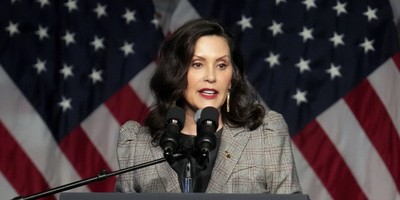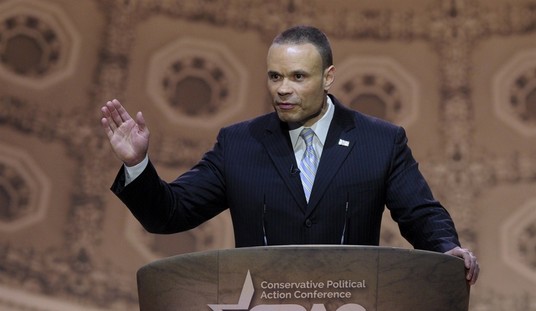I'm on probation these days. For it's that time of year when Jews put themselves on trial before the High Judge, so I write today's column from the dock, being my own accuser and, at the end of these Ten Days of Repentance, my own defense attorney. Even my own forgiver, if I can show myself sufficient mercy.
It's a simple assignment, and there's really nothing to worry about. Because the fix is in just between you, me and the whole world. The presiding judge loves me, and at the drop of a prayer will forgive anyone who calls upon Him in sincerity and humility. It's not the Holy One, blessed be His name, who is hard to please in these annual circumstances, for His heart is always open to sinners. And who amongst us has not sinned?
No, it is we Jews ourselves who may harden our hearts and refuse to accept our own pleas for mercy and mitigation. And thus commit the most grievous sin of all, refusing to forgive ourselves. And so fall into despair, perhaps without even realizing it, and proceed to go about our mundane business, mindless and prayerless.
All of which is why, on Jewish New Year's, we have to remind ourselves annually: On Rosh Hashanah, the first day of the year according to our calendar, it is written, and on Yom Kippur, the solemn Day of Repentance that comes ten days later, that the verdict is sealed. Which gives us ten days in which to demonstrate what the good life can be and how to live it. So, you see, the time is short and the stakes high. I must hurry and yet take care not to slip again. For we Jews advocated moving with all deliberate speed long before secular courts heard of that idea.
The first commandment of this high holiday is Cheer Up, and we begin our plea for a sweet new year in high spirits and a good appetite, which is why we eat apples dipped in honey. And pray not as lonely isolated souls but as a people, a congregation, reciting lists of sins in alphabetical order -- sins we may never even have had the wit or imagination to dream up. But we know better than to separate ourselves from anyone, pretending we are better than they and wish all comers: May you be inscribed in the book of life.
In the end, it is our own choices that determine whether this day shall be one of celebration or condemnation. It's called free will, and we all have it, as much as some of us deny it and argue that we really have no freedom of choice given our circumstances -- like being born into poverty or wealth, or having gotten an education or being left to wallow in ignorance. It was Philip Rieff, the sociologist and student of human behavior, who pointed out that man's movement from the paganism of old to a belief in the one God was a shift from fate to faith.
Nor am I alone here in the dock. At my side, as always, is that August Person well known for His mighty deeds of yore, and even those of today if only we all would take heed of Him--for if we are truly made in His image, then He should indeed be standing trial too. For how could He have created us all too fallible human beings knowing that we would surely sin, and yet escape moral responsibility for the terrible crimes we commit against Him and ourselves? J'accuse!
It would be different if our God were one of that grand assemblage convened by the imagination and insight of the ancient Greeks, who portrayed our flyspeck lives as tragedy--a battle against the implacable gods and goddesses. The test man faced in their literature was one of heroic character, and to meet it they would have to show the fortitude of the ancient stoics. But we Jews then as now refuse to accept our place in the world as but playthings of the gods. Rather we defy earthly gods and stand up for human dignity in a world that so often seems bereft of it, always measuring not only our own moral performance but that of God Himself.
How dare He give us all these moral commandments and yet create a world in which He had to know they would be broken everywhere mortal man dare look? People speak about the terror of a godforsaken world, but it can prove just a walk in the park compared to the world He shaped and, one must believe, still shapes. Yes, it is a terrible thing to be left in the hands of a loving God.
How can we claim to know God when we scarcely know ourselves as we change from year to year? To borrow a thought from a newsletter sent out by Rabbi Kalman Winnick of Congregation Agudath Achim here in Little Rock, Arkansas: If we are alive, we cannot help but to be always changing. "Life," he notes, "brings successes and setbacks, changes in our bodies, and knowledge and feelings and experiences. Whatever relationship we formed with another person was based on who we both were at that specific time. It is crucial to evaluate the relationship based on who were are now . . . . The children we once read stories to now need to be treated as mature adults. The parents who once had energy to attend to all our needs now will need us to look out for them. The friends we once enjoyed vigorous activities with . . . now need us to find less active ways to interact [with] as our bodies have aged. Reality requires we have a different relationship with someone we love who recently buried a parent or spouse (or G-d forbid] a child."
Recommended reading: "The Challenge of Jewish Repentance" by Jonathan Sacks, formerly chief rabbi of the United Hebrew Congregations of the Commonwealth, in the Wall Street Journal. Or just have a nice long talk with your own preacher, who Lord knows needs a friend to talk with too. For we're all in this together, this being sin, repentance and the quality that bridges them all: mutual forgiveness. God bless all and happy new year to all.
Happy New Year
The opinions expressed by columnists are their own and do not necessarily represent the views of Townhall.com.
Advertisement
Advertisement
Advertisement

Advertisement























Join the conversation as a VIP Member